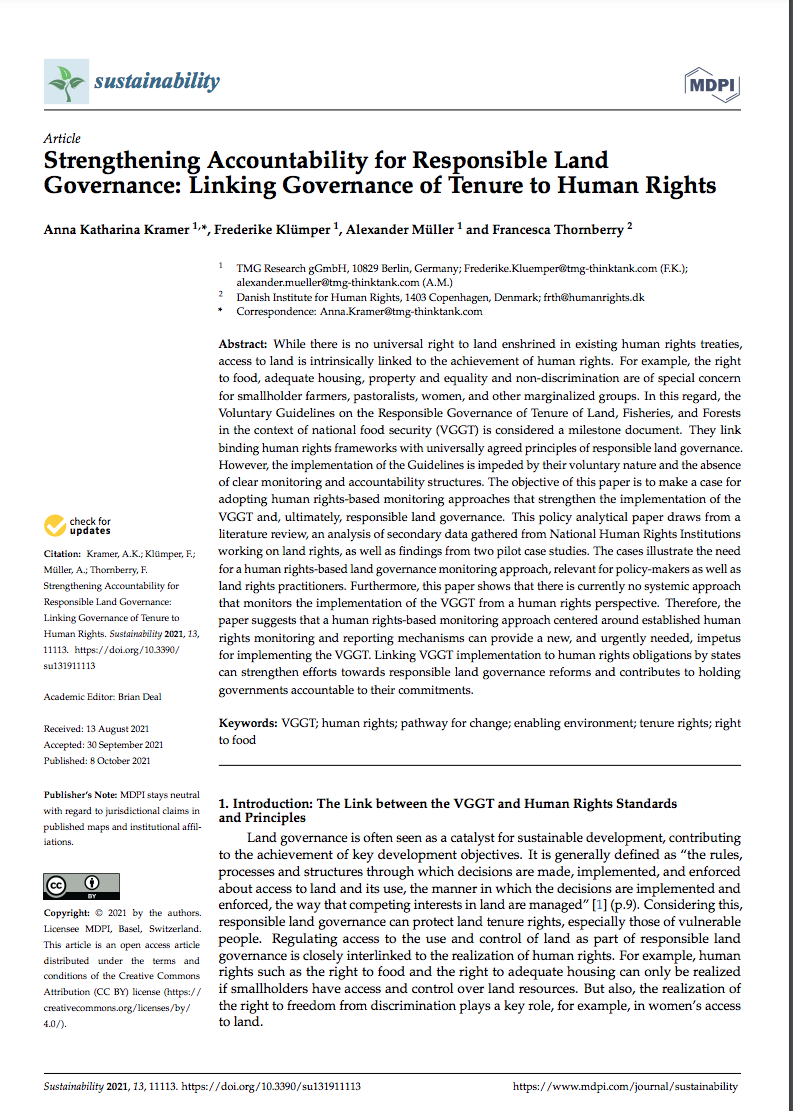Resource information
In a new paper, written with a colleague from the Danish Institute for Human Rights, TMG researchers Anna Kramer and Frederike Klümper, and TMG Managing Director Alexander Müller, make a case for adopting human rights-based monitoring approaches that strengthen the implementation of the Voluntary Guidelines on the Responsible Governance of Tenure of Land, Fisheries, and Forests (VGGT), and ultimately support responsible land governance.
While there is no universal right to land enshrined in existing human rights treaties, the note, access to land is intrinsically linked to the achievement of human rights. For example, the right to food, adequate housing, property and equality and non-discrimination are of special concern for smallholder farmers, pastoralists, women, and other marginalized groups. In this regard, the VGGT link binding human rights frameworks with universally agreed principles of responsible land governance.
However, the implementation of the Guidelines is impeded by their voluntary nature and the absence of clear monitoring and accountability structures. Hence the authors argue for the adoption of human rights-based monitoring approaches that strengthen the implementation of the VGGT. The policy analytical paper draws from a literature review, an analysis of secondary data gathered from National Human Rights Institutions working on land rights, as well as findings from two pilot case studies.
The cases illustrate the need for a human rights-based monitoring approach. Furthermore, the paper shows that there is currently no systemic approach that monitors the implementation of the VGGT from a human rights perspective. Therefore, the authors suggest that a human rights-based monitoring approach centered around established human rights monitoring and reporting mechanisms could provide a new, and urgently needed, impetus for implementing the VGGT. Linking VGGT implementation to human rights obligations by states could strengthen efforts towards responsible land governance reforms and contribute to holding governments accountable to their commitments.

